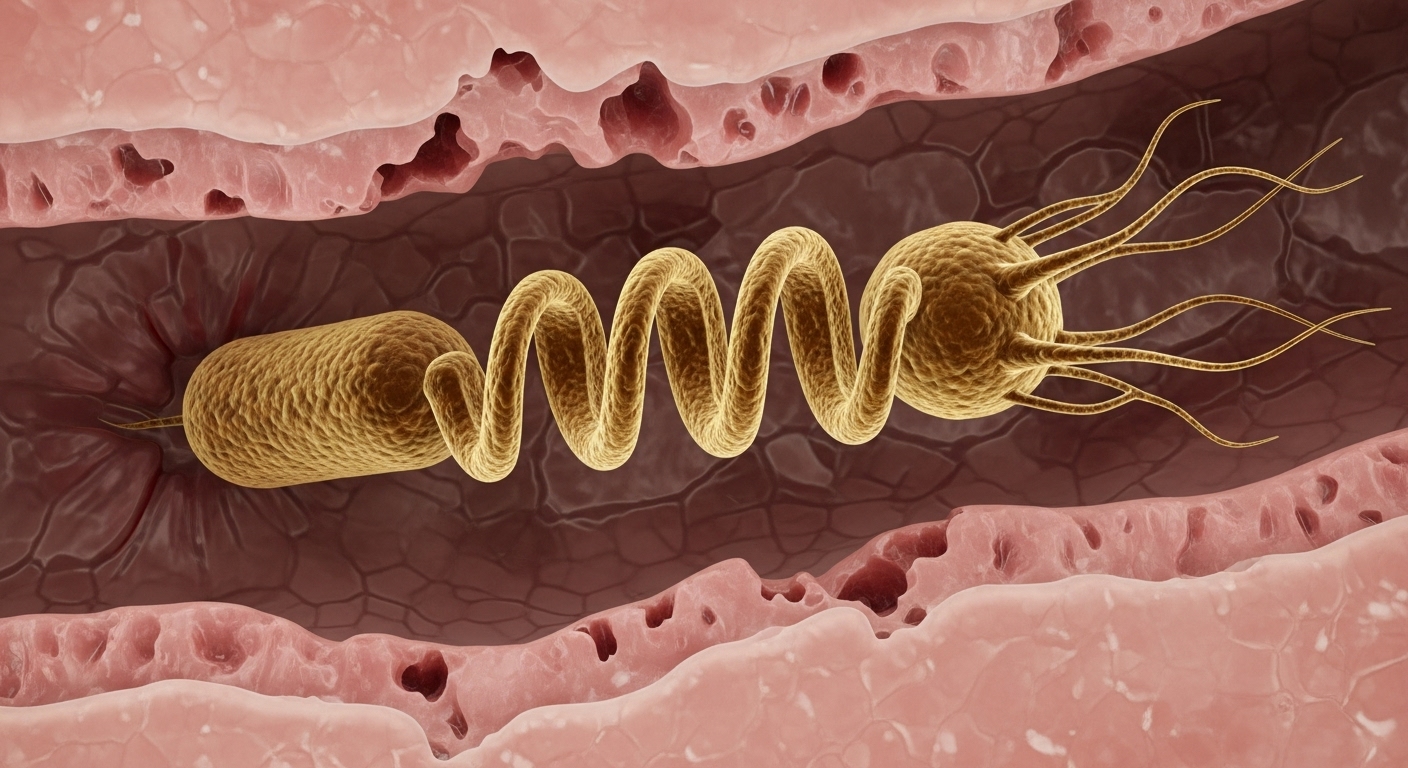Dr. Kumar’s Take:
Barry Marshall’s Nobel Lecture is one of the most striking stories in modern medicine. He and Robin Warren challenged decades of dogma by showing that Helicobacter pylori infection, not just acid or stress, was the true cause of most peptic ulcers. Marshall even went so far as to drink a culture of the bacteria himself, developing gastritis to prove his case. This bold experiment, combined with clinical trials, changed ulcer care from life-long acid suppression and surgery to simple antibiotic treatment. For readers, the lesson is that sometimes the greatest discoveries come from questioning what “everyone already knows.”
Key Takeaways:
✔ All 13 of 13 duodenal ulcer patients in Marshall and Warren’s 1982 study had H. pylori.
✔ Marshall’s self-experiment confirmed the bacteria could infect a healthy person and cause gastritis.
✔ Antibiotic therapy, often with bismuth, cured ulcers and reduced recurrence dramatically.
✔ By 1994, H. pylori was globally recognized as the cause of peptic ulcers and gastric cancer.
Actionable Tip:
If you suffer from frequent ulcers, heartburn, or unexplained stomach pain, ask your doctor about H. pylori testing. Modern treatments can cure the infection and prevent recurrence, often with just a short antibiotic course.
Brief Summary:
Marshall and Warren’s early studies in the 1980s revealed that nearly every duodenal ulcer patient carried H. pylori. At the time, ulcers were thought to be caused by acid, stress, or genetics, and billion-dollar drugs like Tagamet only suppressed acid without curing the disease. Marshall’s dramatic self-experiment in 1984 showed that the bacteria could cause gastritis. Subsequent double-blind trials proved that eradicating H. pylori with antibiotics cured ulcers and reduced relapse. Today, surgery for ulcers is rare, and H. pylori eradication is standard care.
Study Design:
The landmark prospective study in 1982 enrolled 100 patients undergoing endoscopy. Biopsies were analyzed for spiral bacteria, histology, and culture. Results showed H. pylori in 58% of patients, including 100% of those with duodenal ulcers and 77% with gastric ulcers. Marshall later designed double-blind controlled trials comparing acid suppression versus antibiotic therapy, proving eradication prevented recurrence.
Results:
- Duodenal ulcers: 13/13 patients positive for H. pylori.
- Gastric ulcers: 18/22 patients positive.
- Clinical trials: Antibiotic + bismuth therapy cured ulcers and prevented relapse, while acid suppression alone led to >90% recurrence.
- Self-experiment: Marshall developed acute gastritis after swallowing H. pylori.
How Helicobacter pylori Causes Ulcers
H. pylori colonizes the stomach lining beneath the mucus layer, surviving by producing urease to neutralize acid. The infection causes chronic gastritis, which can progress to ulcers or gastric cancer. Eradicating the bacteria halts this cycle, explaining why antibiotics became the cornerstone of therapy.
Related Studies and Research
Podcast: Stomach Full of Courage – H. pylori and Ulcers – How a self-experimenting doctor changed everything we thought we knew about ulcers.
Discovery of H. pylori: Study Review – The original study that defied dogma and launched a medical revolution.
Peptic Ulcer Disease: Clinical Overview – Modern understanding of ulcer disease in light of bacterial discovery.
Frequently Asked Questions
How common is H. pylori infection?
Over half the world’s population carries the bacteria. Infection usually begins in childhood and may persist lifelong if untreated.
Can H. pylori infection cause cancer?
Yes. Chronic infection increases the risk of gastric adenocarcinoma. Eradication lowers cancer risk by about 50%.
How are patients tested today?
Modern options include breath tests, stool antigen tests, and biopsy during endoscopy. The rapid urease test, pioneered by Marshall, remains in use.
How are ulcers treated now?
Combination therapy with antibiotics (often clarithromycin and amoxicillin) plus an acid-suppressing drug is standard. Cure rates exceed 80–90%.
Conclusion
Barry Marshall’s Nobel Lecture illustrates how persistence, courage, and a willingness to defy dogma transformed ulcer care worldwide. His discovery that H. pylori causes peptic ulcer disease shifted treatment from lifelong acid suppression to short-term antibiotic cures. Today, patients benefit daily from this breakthrough, and gastric surgery for ulcers has nearly disappeared.


